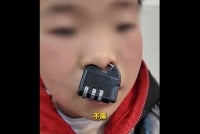AI not a threat to all job sectors
FARHANA ABD KADIR
SHAH ALAM - Although Artificial Intelligence (AI) is claimed to pose a serious threat to the job sector, not all industries need to rely entirely on this technology.
Khazanah Research Institute Deputy Director (Research) Dr Rachel Gong said that despite the increasing use of technology in the workforce, it could not compete with the skills possessed by humans.
She said the impact of AI varies across different industries.
"Highly skilled workers may only require around 60 percent use of AI.
"However, it differs for job sectors like customer service, where robots are seen to be employed and capable of answering all customer queries.
"However, AI interactions are determined by algorithms and sometimes the responses provided are incorrect.
"Therefore, even though many say AI can take over certain jobs, in reality, it doesn't," she said during the Sinar Wacana edition 425 titled 'AI: Threat or Platform,' hosted by Ismail Adnan recently.
Also present were International Islamic University Malaysia (IIUM) Faculty of Information and Communication Technology lecturer Professor Datuk Dr Mohamad Fauzan Nordin and Saudara Executive Director Lim Hong Siang.
Rachel added that while AI helped ease work, it could potentially be a 'killer' of human development.
She clarified that to tackle this challenge, every educational institution should emphasise AI development and study its impact on human social relationships.
"Dependency on technology will change attitudes towards jobs.
"Consequently, their careers won't progress.
"To overcome this challenge, we need more educational institutions offering AI education and its application methods for society," she added.
Download Sinar Daily application.Click Here!














